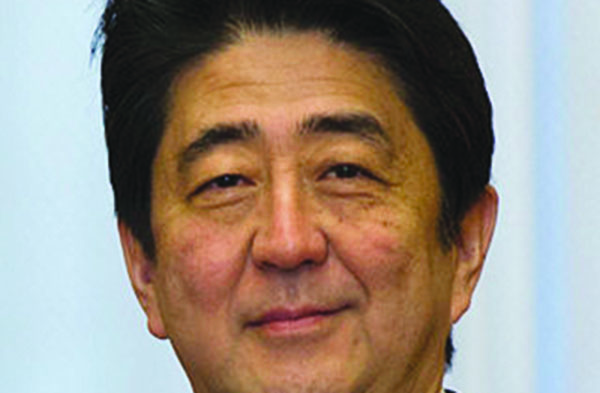By Peter Richards
Caribbean Correspondent
PORT OF SPAIN, Trinidad, CMC – Japan and the Caribbean Community (CARICOM) grouping ended an historic first ever summit here on Monday exploring areas of cooperation that could further deepen their existing relationships.
“We explored areas in which our cooperation could be deepened and our relationship strengthened in the interest of both parties, and are heartened by the response of the Prime Minister on a number of issues such as reform of international financial governance,” said CARICOM Chairman and Antigua and Barbuda Prime Minister Gaston Browne.
Browne, speaking at the end of the near two hour summit said that the visiting Japanese Prime Minister Shinzo Abe “feels strongly now for expeditious reform” adding “we will have regular meetings”.
He said the regional leaders had also welcomed Japan’s support for including issues relating to vulnerability, in particular, the challenge of accessing concessionary financing “to those of us categorised as middle income countries.
“We welcomed Japan’s support…in this regard,” he said, adding “the case therefore would need to be made to the international community by development partners, such as Japan, for new alternative sources of development financing to be made available to CARICOM states and other middle income countries with similar vulnerabilities.
“Japan’s support through its influence in institutions where these determinations are made was stressed. CARICOM would welcome Japan’s assistance in advocating on behalf of the Caribbean region in fora such as the United Nations, the G8 and G20, so that there could be a better understanding of the problems that these countries face,” Browne said.
Prime Minister Abe, who arrived here on Sunday on a two-day visit, as part of a tour to several Latin America and Caribbean countries, is the first head of government in Japan to visit the Caribbean. His trip coincides with the 50th anniversary of diplomatic relations between Tokyo and Port of Spain and the host Prime Minister Kamla Persad Bissessar said that the two countries “share the fundamental values of freedom, democracy, the rule of law and respect for basic human rights”.
She said Port of Spain welcomes the planned investment opportunities both in the upstream and downstream energy sectors, including the US$850 million Methanol and Di Methyl Ether (DME) project which is a collaboration between a local conglomerate and the Mitsubishi Consortium.
“Trinidad and Tobago looks forward to the establishment of an InvestTT presence in Tokyo in order to accommodate trade and investment flows,” she said, adding “additionally we recognise Japan’s ability to assist CARICOM in building capacity for renewable energy”.
Prime Minister Abe said his country regarded CARICOM as a “global partner” and that Tokyo would play its part in actively engaging the international community on issues concerning vulnerabilities, particular to small island states (SIDS), including the discussions at the International Conference on Small island Developing States and at the United Nations Climate Summit later this year.
He said Japan would also work with the 15-member CARICOM grouping in “making and clarifying claims based on international law, not using force or coercion (and) seeking to settle disputes by peaceful means” within the international community.
Prime Minister Abe also reiterated that Tokyo in considering the “vulnerabilities particular to small island states” CARICOM will recognise the importance of assisting them “from perspectives other than those based on per-capita income.
“For further cooperation, we will first conduct field surveys, possible areas of assistance, for example, include disaster risk reduction and environment, with concrete arrangements of cooperation to be considered based on survey results”,.
Prime Minister Abe said Japan would also seek to “dramatically expand” the reach of its exchange programmes with the Caribbean countries that “boast a proud heritage in academia, literature, the arts, music and sports”.
He said the Japan-CARICOM Friendship Year 2014 would serve as an avenue to expand the exchange programme and that Tokyo would also promote Japanese language education through strengthening cooperation with the Japan Foundation and through the utilisation of tools such as information and communication technologies (ICT).
Prime Minister Browne, who recently took over the chairmanship of CARICOM, said that the regional countries in keeping with the decision taken at their last summit in Antigua earlier this month, “expressed our interest to enter into discussions with private Japanese financiers on the provision of development financing to the region.
“Infrastructure development was identified as one key area to utilise such funding and as a prime possibility of public private partnership,” he told reporters at the end of the summit.
He said the regional leaders also urged Japan to support the initiative in establishing international advocacy on the CARICOM Debt issue (CDI).
“We expressed the hope that with appropriate measures such as aid for trade and assistance in developing our technology sector we can move towards correcting the sizeable trade imbalance that now exists between us in Japan’s favour,” he said.
Prime Minister Browne said that the region had also put forward the tourism sector as “an area in which there could be greater people to people exchange with resulting growth in our economies as tourism is the greatest GDP (gross domestic product) earner in our community.
“We expressed the view that CARICOM believes that energy and renewable energy should be central to the post 2015 Development agenda,” Browne said, adding that the United Nations Development Programme (UNDP) Renewable Energy Fund and other relevant partners should provide resources to create enabling environments.
Prime Minister Spencer said that the summit also agreed that special consideration “should be given to financing for early warning systems to reduce loss and facilitate recovery, reconstruction and rehabilitation” stressing the need to “enhance and establish means and tools at the international level to implement a preventative approach for natural disasters in SIDS, reducing risks and main streaming risk management into development policies and programs”.
 Pride News Canada's Leader In African Canadian & Caribbean News, Views & Lifestyle
Pride News Canada's Leader In African Canadian & Caribbean News, Views & Lifestyle





